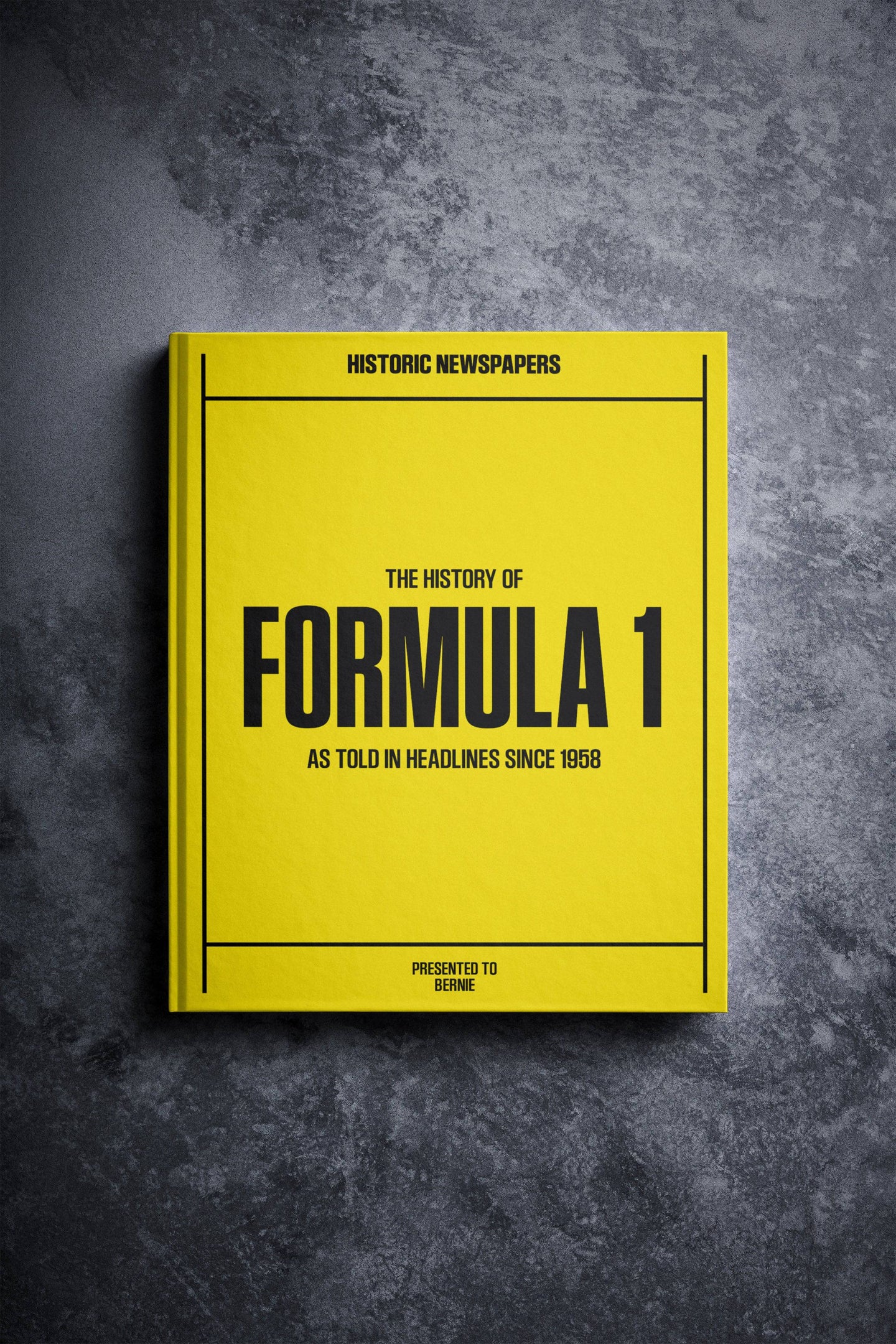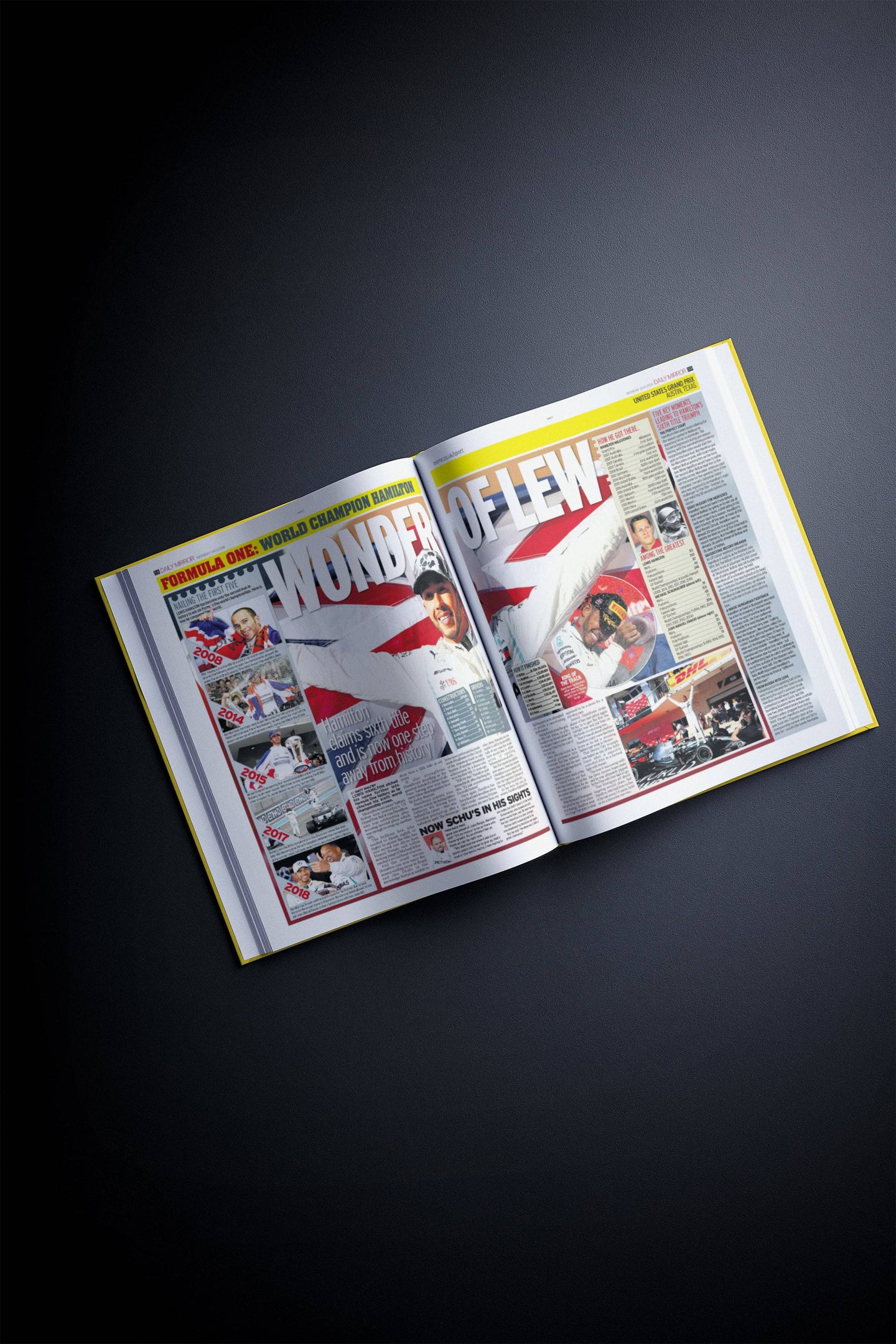It is quite simply impossible to discuss the 1986 World Cup without talking about Diego Maradona. Across the decades of football covered in our personalised football books, no major tournament has ever been so dominated by one man alone. Here, with the help of original newspaper reports from the time, we revisit the most notorious chapter in Maradona’s legendary football story.

Maradona’s “Goal of the Century” (Image Credit: Wikimedia Commons)
No Love Lost
Going into their 1986 World Cup Quarter Final, tensions between England and Argentina could hardly have been any higher. The bitter aftertaste of the Falklands War four years earlier still remained on Argentine lips, and for many, a football match was as good an opportunity as any to exact revenge.
However, the Falklands conflict wasn’t the only English victory deemed worthy of retribution by the Argentineans. The last time the two nations had met in a competitive football game was in another World Cup Quarter Final, in 1966. In the first half, Argentina’s captain Antonio Rattín received two yellow cards in the space of a minute, for reasons unclear to seemingly everyone but the referee. Rattín refused to leave the pitch, and then disrespected a Union Jack corner flag when he finally did. As the Sunday Mirror’s Sam Leitch wrote:
“Rattín is the motor of all their midfield play and without him Argentina could not mount any worthwhile attacks.”
England would go on to win the game – one of many featured in our England football book – and the tournament. Manager Alf Ramsey refused to let his players swap shirts with the Argentineans at full-time, reportedly calling them “animals”. And despite Leitch’s opinion that “There was no doubt that England deserved victory”, in Argentina the match would become known as “El Robo de Siglo”: the robbery of the century.
The Golden Boy
Twenty years later, the influence of Argentina’s captain dwarfed that which had been provided by Rattín. The man in question was Diego Armando Maradona. Then the world’s most expensive player, Maradona was, at 25, already viewed as both a genius and loose cannon across the globe. In Argentina, he was simply “El Pibe de Ore”: The Golden Boy.
Scoring against holders Italy in the group stage, Maradona guided Argentina to the last 16, where they defeated South American rivals Uruguay. England’s path to the last eight, however, was less straight-forward. After a shock defeat against Portugal in the opening match, England endured perhaps an even bigger nightmare in a goalless draw against Morocco. In the 41st minute, talismanic captain Bryan Robson suffered a shoulder injury, ruling him out for the rest of the tournament. A mere minute later, his midfield partner Ray Wilkins was sent off.
“Bring on Diego”


After these two “embarrassing results”, rendering manager Bobby Robson, according to Mirror Sport’s Harry Harris, “a man who knew his head was in the noose”, misfiring England needed to beat 1982’s third-place finishers Poland to avoid an untimely exit from the competition. Fortunately, thanks to a hat-trick from eventual Golden Boot winner Gary Lineker, they did just that, sparking a renewed sense of optimism in the process, as Harris wrote:
“England last night rekindled the hopes of a nation… and gave a massive V-sign to the rest of the world who had written off our Mexican mission.”
After dismantling Paraguay to set up a quarter final showdown with Argentina, the English press wasted no time zeroing in on the obvious standout threat. Running with the headline “Bring on Diego”, the Daily Mirror hopefully declared: “If England can contain Maradona as effectively as they closed down
The Match
114,000 people crammed into the Azteca in Mexico City on 22 June 1986. Little did they know, they were about to witness one of the most memorable individual performances in the history of professional football.
The first half of the match failed to live up to expectations, with England sitting back, content to hit their opponents on the break. Argentina, then, dominated possession, with Maradona winning freekick after freekick as the England defence did whatever it could to stop him. As it turned out, not even the fundamental rules of the game could manage such a feat.
“Bandit Diego Hands Glory to Argentina”
In the 52nd minute, a Steve Hodge miss-kick looped into the air towards England goalkeeper Peter Shilton. Out of nowhere, Maradona, almost a foot shorter than the onrushing Shilton at 5’4”, leapt skyward and inconspicuously punched the ball into the net with his hand. Despite mass protests from the England players to referee Ali Bennaceur, the goal stood.
It is fitting of the infinitely paradoxical nature of Maradona that less than five minutes after the so-called “Hand of God”, indignantly described by Harris as “a blatant act of cheating”, the diminutive number 10 scored possibly the finest goal to ever grace a World Cup finals.
Picking up the ball in his own half, Maradona spun Peter Beardsley and Peter Reid in one smooth movement. As the latter fruitlessly gave chase, Maradona exploded towards the England goal, turning defenders Butcher and Fenwick inside out in the process, before gliding past Shilton and sliding the ball into the empty net. An equally impossible goal, albeit for very different reasons.
“Out of this World”


With a quarter of an hour to go, England turned to its own left-footed maestro, John Barnes. Before the game was through, Barnes would deliver two exquisite, near-identical crosses from the left flank. The first, in the 81st minute, was dispatched home by Lineker. The second, right at the death, flashed across the face of an open goal, missing Lineker’s oncoming head by inches.
2-1 was how it finished. The following morning, Harris’s Daily Mirror colleague Harry Miller summarised:
“England yesterday were cheated out of their most important clash with old rivals Argentina… Argentina have finally got their revenge.”
Maradona’s Legacy
As England boarded a flight home, Argentina swept Belgium in the semis thanks to another Maradona double. They would go on to beat West Germany 3-2 in arguably the most thrilling World Cup Final in history. Maradona received the Golden Ball, awarded to the best player in the tournament.
After years of health issues, Diego Maradona died of a heart attack on 25 November 2020. For many he will be remembered as the greatest footballer of all time. In that great debate, his partisans will routinely select one game above all others as evidence of his transcendence: England v Argentina, 1986, in which he scored two of the most incredible goals ever seen on a football pitch. It could also be said that, sportsmanship aside, an even more difficult debate could be had over which of the two goals – one a dazzling solo symphony, the other a crafty flash of opportunism – displayed more genius than the other.


























Follow us